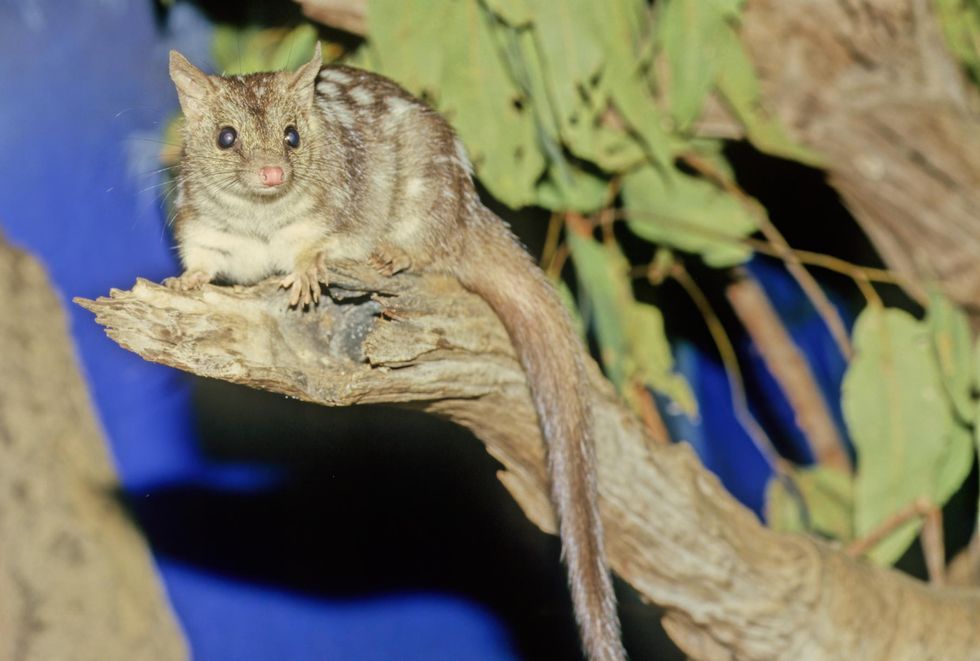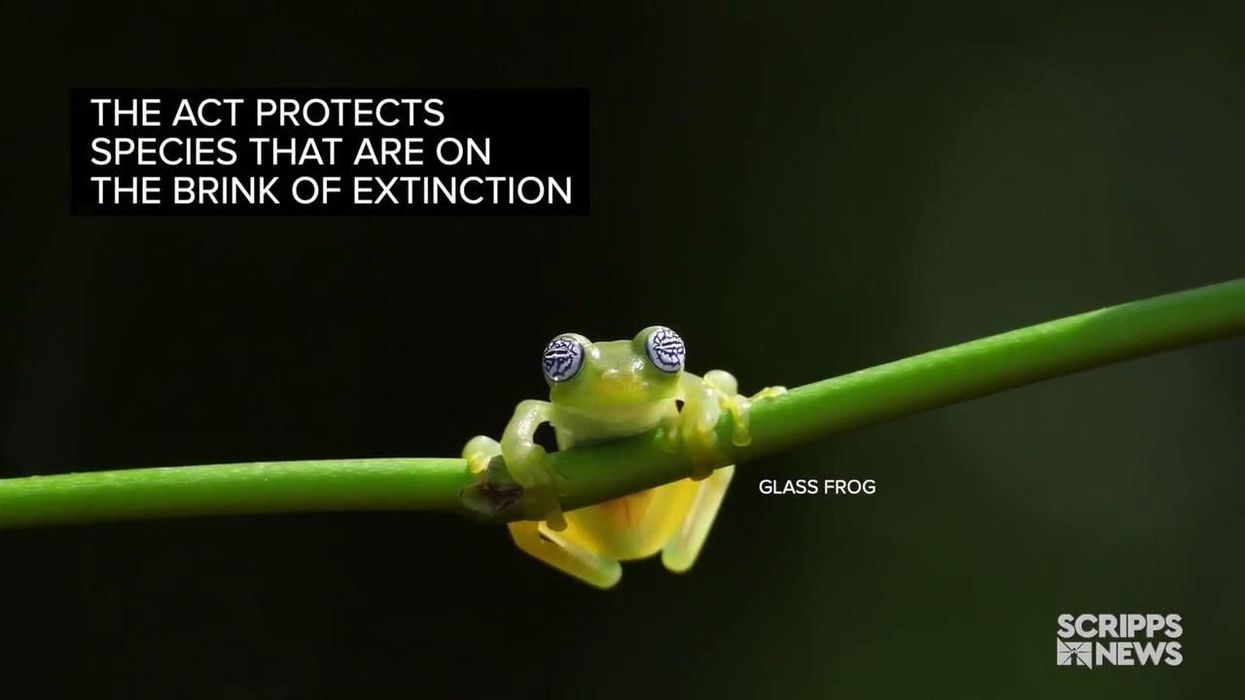Becca Monaghan
Feb 02, 2023
The Endangered Species Act turns 50 this year
content.jwplatform.com
Northern quolls are dying off for having too much sex instead of sleep, a new study suggests.
According to research led by the University of the Sunshine Coast, male quolls are mating themselves to death in one season. Meanwhile, females can live and reproduce for up to four years.
UniSC Senior Lecturer in Animal Ecophysiology Dr Christofer Clemente says: "They cover large distances to mate as often as possible and it seems that their drive is so strong that they forgo sleeping to spend more time searching for females,"
"Something is definitely causing their health to fail after just one season and we think it is linked to sleep deprivation," Dr Clemente adds.
"The dangers of a lack of sleep are well documented in rodents, and many of the traits associated with sleep deprivation we see in male quolls, and not in females."
Sign up for our free Indy100 weekly newsletter
He explains that the males lose weight and become aggressive and reckless when it comes to survival.
They also invest all of their energy into their one-off breeding season which has a knock-on effect on their appearance. During this time, they are said to experience an increase in parasites due to a lack of grooming.

As a part of the study with The University of Queensland, researchers fitted trackers on backpacks on both male and female Northern quolls.
Lead author, UniSC PhD candidate Joshua Gaschk, says: "Male Northern quolls breed for one season, while females can breed for up to four, so this suggested that if no difference was detected in their daily behaviours that they perish due to an unexplored aspect of their physiology."
Instead, they discovered that male and female quoll behaviours differed significantly.
"Two males, who we named Moimoi and Cayless moved for 10.4km and 9.4 km in one night respectively. An equivalent human distance, based on average stride length, would be around 35-40km," he explains.
Males were also said to lack vigilance when it came to eating and searching for food, which researchers suggest could be a result of lack of sleep.
"Sleep deprivation and associated symptoms for a prolonged duration would make recuperation impossible and could explain the causes of death recorded in the males after breeding season," Gaschk says.
"They become easy prey, are unable to avoid vehicle collisions, or simply die from exhaustion.
The initial data highlights the need for further studies to provide insights into the effect of sleep deprivation on the quolls.
"We want to determine if sleep deprivation is experienced by other family members, such as opossums, antechinus (marsupial mice) and Tasmanian Devils," Gaschk adds.
'Virginian opossums (Didelphis virginiana) undergo a similar physiological change to other semelparous species but do not experience the die-off, while Tasmanian devils (Sacrophilus harrisii) experience a similar loss in condition and a reduced immunocompetence.
He continues: "If male northern quolls forgo sleep to the detriment of their survival, Northern quolls become an excellent model species for the effects of sleep deprivation on body function."
Have your say in our news democracy. Click the upvote icon at the top of the page to help raise this article through the indy100 rankings.
Top 100
The Conversation (0)














